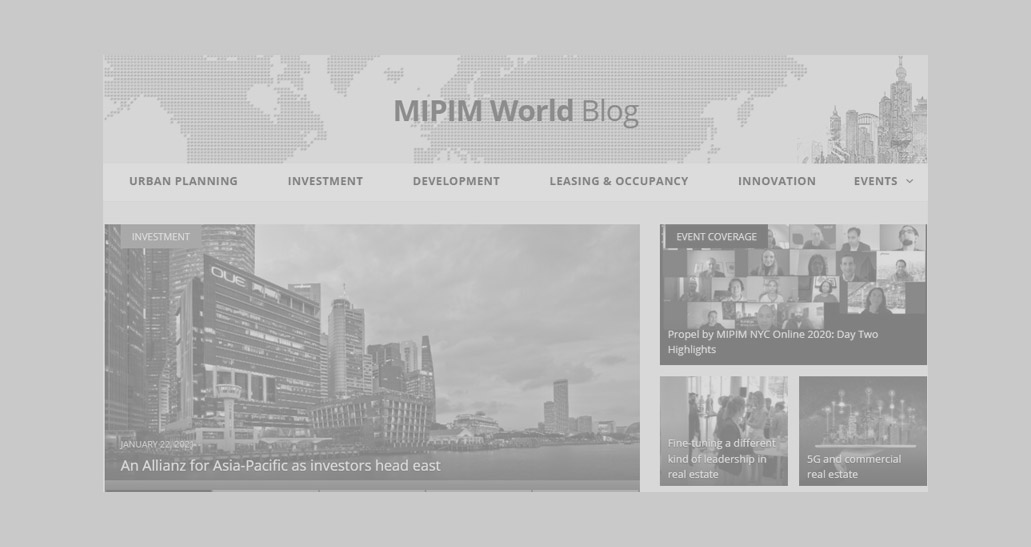“Cities must listen to their end-users,” Sophie Rosso says. “Only by doing that, you can create the right balance within neighbourhoods and build progressive cities which work for their inhabitants.
“We believe in creating an adaptable service provision in line with the evolution of citizens’ lifestyles, both meeting their expectations and reflecting the characteristics of their neighbourhood, says Sophie Rosso. “The real challenge for developers is to offer sustainable buildings which facilitate that.”
According to Sophie Rosso, QUARTUS has been rethinking ways to create city neighbourhoods by getting their future users involved at the design stage.
“Lots of developers consult users when they’re about to do the fit-out,” Sophie Rosso says, “At QUARTUS, we think that collaboration should start much sooner – before properties and neighbourhoods have even been built.”
Sophie Rosso notes that real estate developers have traditionally constructed cities without thinking about the needs of future inhabitants. “We believe that it’s time for a new mindset,” she explains.
Technology in urban planning
To this end, QUARTUS has been working with start-up companies such as Madeinvote, which is described as the first crowdsourcing platform promoting citizen engagement. The brainchild of Guillaume David, Madeinvote can be employed for projects such as neighbourhood development and even the co-construction of cities.
The platform gathers opinions through digital studies they launch via social media outlets including Facebook, distinguishing between a district’s residents, those who work there, and those who are just passing through, Sophie Rosso explains. By canvassing opinions about requests for services or opportunities, feedback can better help the developer plan each neighbourhood in a very tailored way.
“This digital tool allows us to understand the different uses and different needs in the same district, depending whether people are residents or workers or just cross the district ring their journey”, Sophie Rosso notes. “This is a way of getting really specific feedback in an easy way.”
QUARTUS has already applied the technology at 10 projects across France and is in the process of rolling it out across another half a dozen schemes. “It’s interesting, because the information that emerges is not always what you expect,” Sophie Rosso says. “For our Nantes scheme, we expected residents to say that they needed bakeries or supermarkets, but instead, they wanted wood craft shops, and the opportunity to launch their own businesses, with available shop space. So that had a big effect on how the project evolved.”
Elsewhere, it is proving a means to mobilise opinion in the public realm, as well, she says. “In Reims, our findings were used during a public meeting to back up planning proposals. So, the potential for this technology is huge, at even earlier planning stages. This method also allows people who don’t like to speak in public or who don’t have time for meetings to answer easily. This explains that the average of numbers of answers are around 1,000 for each study. Thanks to this kind of technology, we think the cities of the future will be able to canvass local opinions about potential urban developments in a much more effective way.”
Sophie Rosso admits that these kinds of consultative projects – dubbed co-building schemes – take more time and more expense to implement. “Gathering information adds costs,” she notes. “But the public sector needs to be in touch with public opinion, and is more and more interested in working with private enterprise to do this.” And while technology plays a key role in this, Sophie Rosso says that a big part of the scheme has been physical meetings which are coordinated in neighbourhoods during the evenings, to leverage collective feedback and a sense of community.
Meeting user expectations
Elsewhere, QUARTUS has been exploring the needs of inhabitants in urban districts with the recent launch of FaciliCiti, a data-driven solution which aims to simplify the lives of city residents. The platform combines a strong digital dimension with a physical network at a neighbourhood level, to improve the provision of services, whilst boosting human connections. Implemented post-construction, FaciliCiti’s facilitators welcome individuals to a neighbourhood and promote a wide range of local services centred around living and housing needs, with communication streamlined via an app.
More widely Quartus is aiming at including more widely local economic actors to settle them in the operations. “For example, we’ve been working with another brilliant start-up – Meet My Mama – which provides home-cooked food to neighbourhoods, while addressing immigration and employment issues,” Sophie Rosso adds. This FoodTech firm works mainly with refugees, retraining them as chefs and encouraging them to prepare dishes from around the world in a true “culinary journey”. The newly trained chefs operate as service providers within a given neighbourhood, providing food for households, or catering for corporate events.
“The most important thing we have learnt on this journey, is that while technology is facilitating great change, the key revelation has been putting human experiences and needs back at the heart of urban development,” Sophie Rosso concludes.



